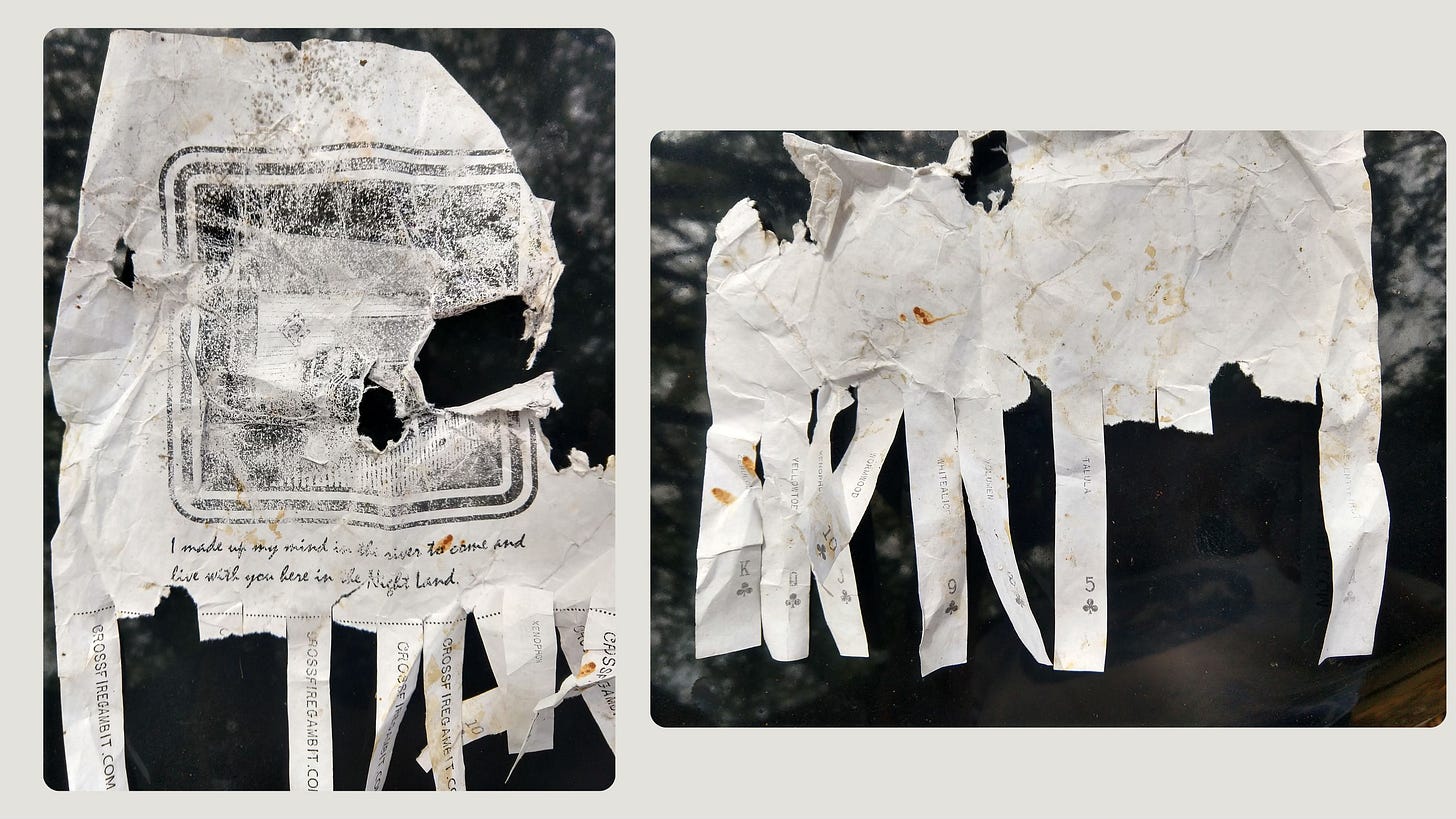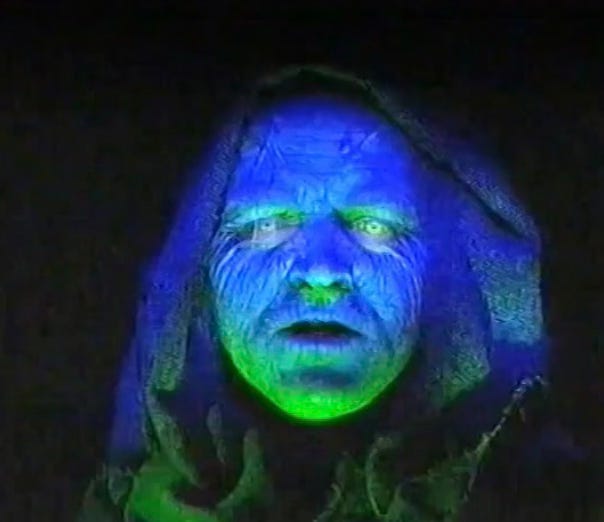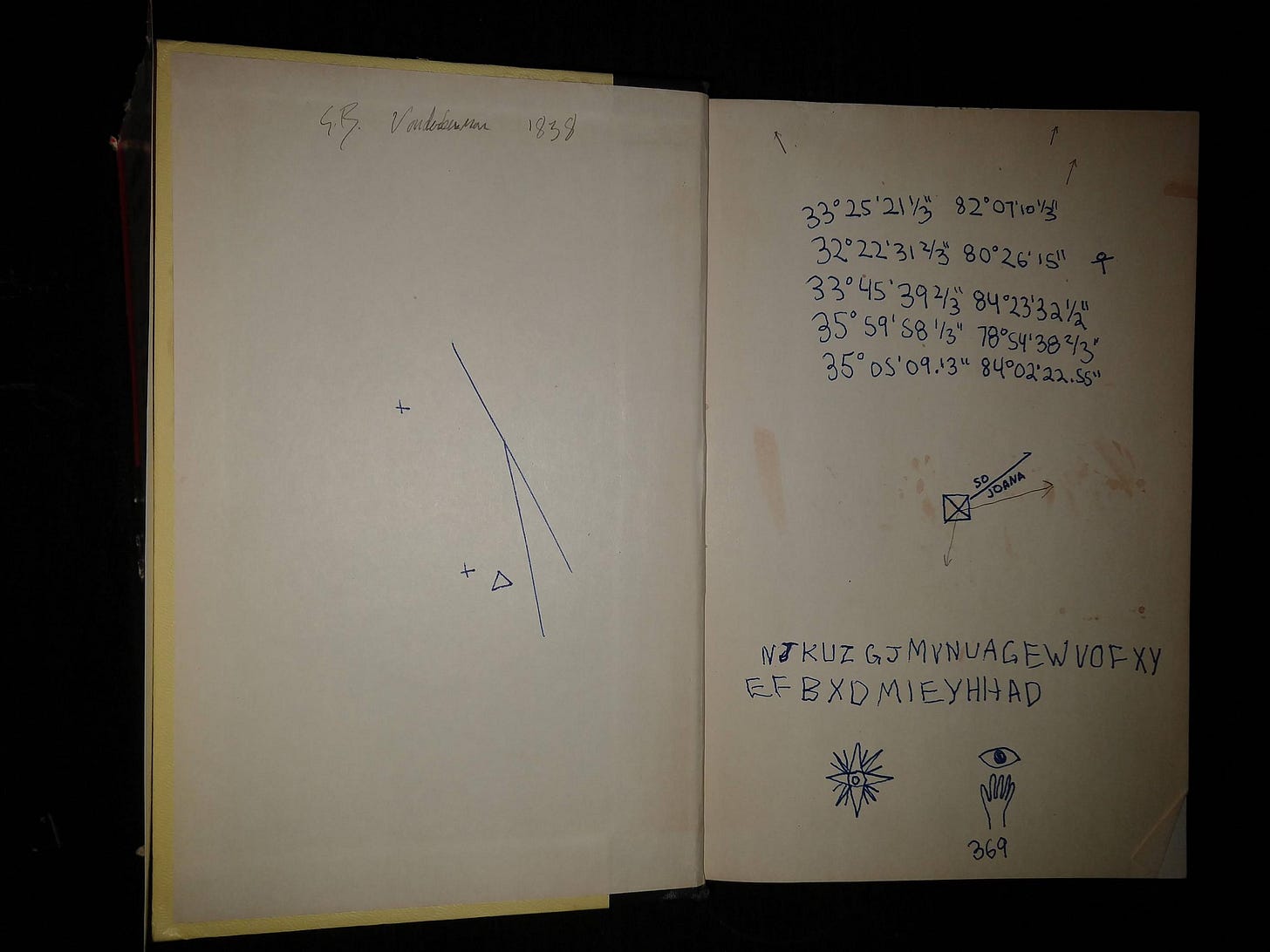Strange Love Game - Chapter One
The Dungeon Master
Chapter One in our series A Strange Love game - read the Prologue here.
Saturday, July 27, 2024 - North Asscheek, Canada
Even by the standards of a harsh northerner in this wasteland I call home, today is unseasonably cold for July. Unfortunately, while North Asscheek isn't a real place, it perfectly captures the essence of my locale.
It's still early, long before I would find myself deep in the physics of an 8-lb. socket plummeting down a thermonuclear missile silo. The journey that led me there, however, was anything but straightforward.
After a gruelling week and facing a monotonous morning of monthly bookkeeping, I craved a mental break. The miserable weather outside meant my family and I were scattered throughout the house, each lost in our own hobbies and shows, staying cozy indoors. I nestled into the living room with a fresh coffee, my laptop, and the companionship of our Bernadoodle, Poppy, snoring nearby, and Esme, our spicy tortoiseshell cat, curled up on my legs, using my blanket as her personal hammock.
As I idly scrolled through old newspaper archives with a YouTube video playing in the background, a new mystery grabbed my attention: The So Joana Book Mystery.
The tale begins in 2019. Someone purchased a travel book from a quaint shop in Fort Mill, South Carolina. Inside the book, they found something odd—approximately 50 of its 750 pages were covered in strange codes, coordinates, and cryptic doodles. Confused, they posted scans of these pages to Reddit, specifically the subreddit r/RBI—the Reddit Bureau of Investigation. This international community of amateur sleuths, hackers, conspiracy theorists, and puzzle-solvers is a haven for such oddities.
Eager Redditors swarmed the post, diving into the handwritten symbols and geographic coordinates dotting the photograph-lined pages, hungry to decipher their meaning.
As images of the book danced across my screen, I couldn't shake the feeling that this wasn't an ordinary travel guide simply defaced by random doodles. There was intent here—a puzzle forming. Intrigued, I kept watching until the YouTuber, Virtual Carbon, mentioned another user: rickymacchristen3302. My brain lit up. The number "3302" stirred something within me.
If you're wondering why I'd leap at the chance to follow clues from a random travel book or why "3302" matters, let me explain: what I stumbled upon was an Alternate Reality Game—or ARG.
ARGs are immersive puzzles, blending the real world with online challenges. Unlike traditional games, ARGs don't tell you you're playing. There's no obvious "start" button or invitation, just a series of breadcrumbs waiting to be discovered. ARGs are designed to draw you into an elaborate mystery, an intricate web of clues—some in plain sight, others buried within coded messages. If you're lucky, someone might post a "trailhead" signalling the start of the game, but often, you're left to figure that out on your own.
The number "3302" instantly reminded me of Cicada 3301, a cryptic and complex ARG that surfaced in 2012.
Orchestrated by a mysterious group called 3301, Cicada is often considered one of the most difficult online puzzles ever created. Its real-world counterpart is Kryptos, the unsolved cryptographic sculpture at CIA headquarters. Even today, the meaning behind Cicada and its final puzzles—some of which involve a book—remain unsolved. When I saw "3302" attached to this new YouTuber's name, I knew it had to be a cheeky nod to Cicada.
But something about this new mystery felt different. There was a certain gravity to it, especially when another clue surfaced: a tattered tear sheet.

The sheet, printed in black and white, featured a difficult-to-decipher emblem beneath a cryptic poem: "I made up my mind in the river to come and live with you in the Night Land." At the bottom were tear-off strips, each with a domain name—crossfiregambit.com—and playing cards from the 'Clubs' suit. Five strips were already torn off, leaving eight remaining.
Above each card was a code word, each unique.
These tear-off flyers, once a staple on bulletin boards at farmer's markets or laundromats, have become relics in the age of cell phones. Yet, here it was—an analog clue in a digital puzzle. My excitement surged. I felt like I was squaring off with a Dungeon Master, the architect of conflict in Dungeons & Dragons campaigns. Like Eddie Munson in Stranger Things, I was ready to take on the challenge.
My introduction to ARGs came long before Cicada 3301. In 1991, I stumbled upon Nightmare—a terrifying VHS board game hybrid known as Atmosfear in some countries. The game's host, a grotesque "Gatekeeper," became progressively more menacing as the game went on, with jump scares and anxiety-inducing rounds that left me too terrified to ever finish a full session.

A decade later, in 2001, as a programming student at a now-defunct business college, I discovered my first true ARG—Majestic, developed by Electronic Arts. Though not a commercial success, Majestic pushed the boundaries of immersion, featuring live-action cutscenes and even real-world phone calls. It was groundbreaking.
"Majestic... that takes me back," I muttered, glancing at Esme as she purred contentedly. Nostalgia washed over me, but so did a rush of anticipation.
"Fuck bookkeeping. Let's see where this rabbit hole leads."
With that, I slid on my headphones, opened a new browser tab, and dove in.
This is where the journey truly begins.






Now I am hooked even more so.